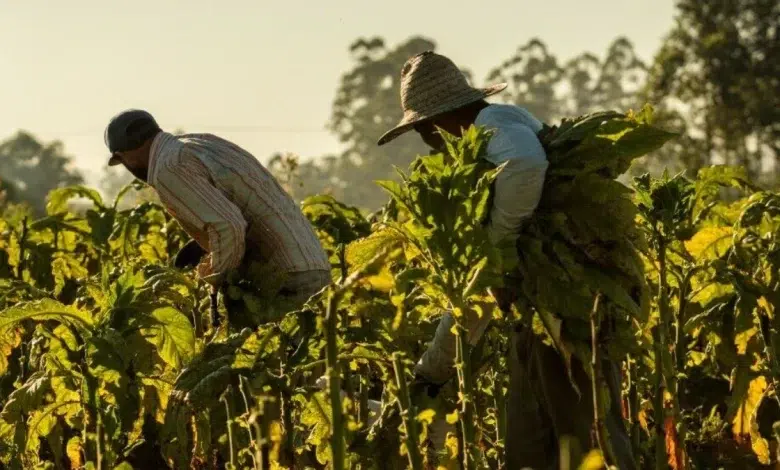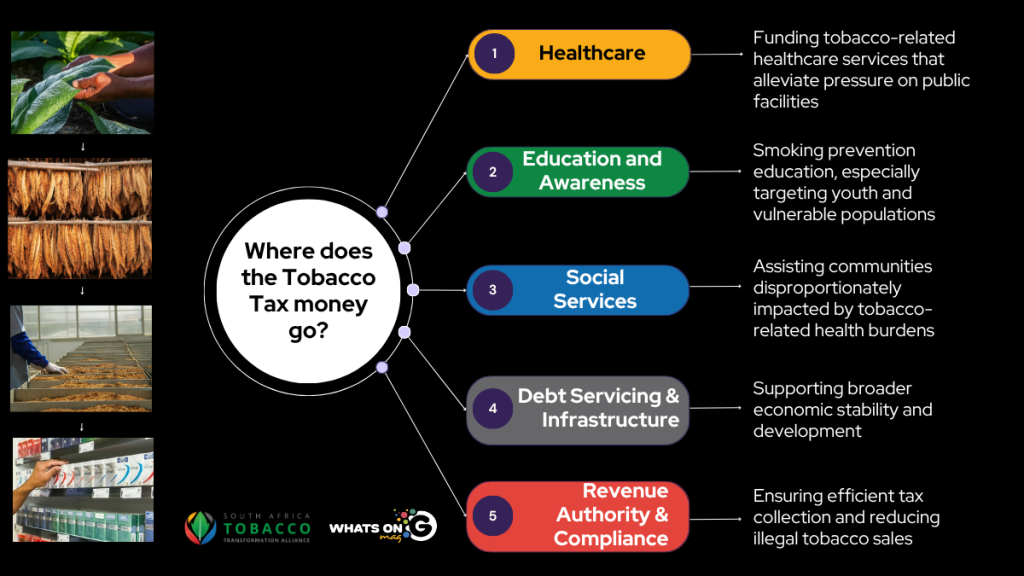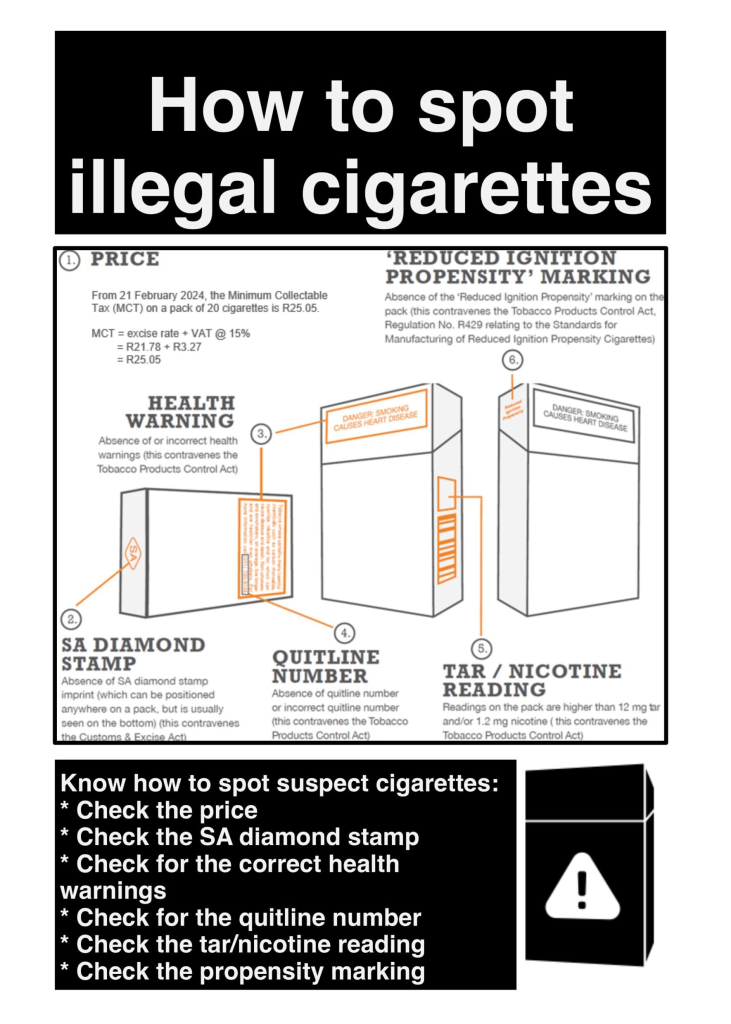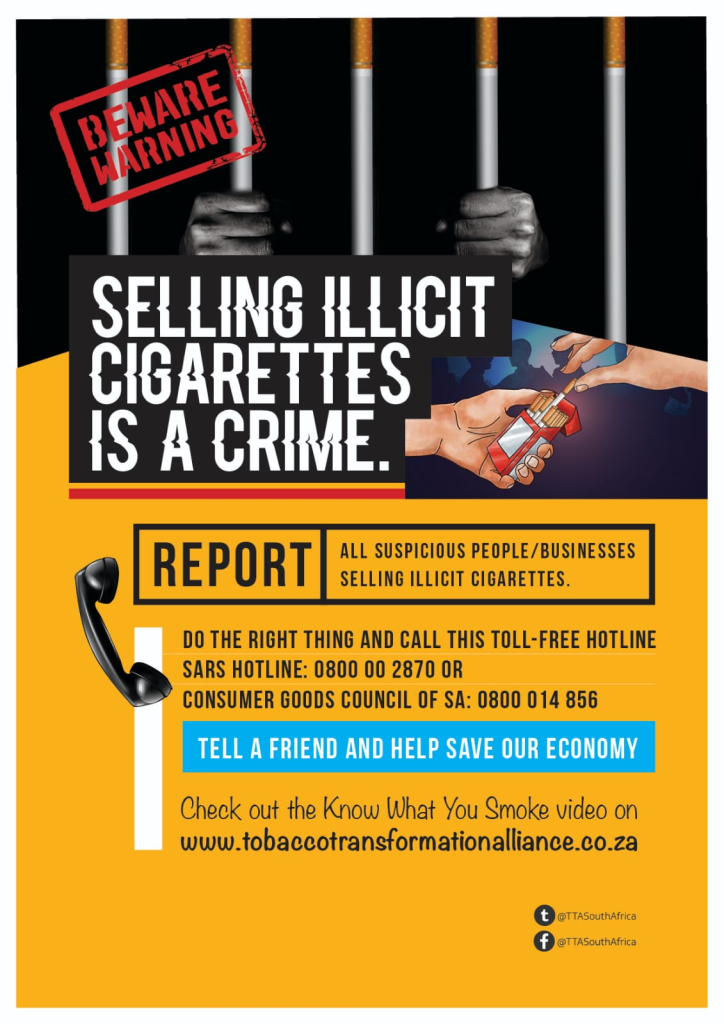Illicit Cigarette Trade Is Destroying South African Jobs: Here’s How to Stop It

The illicit cigarette trade in South Africa is a booming black market. It causes severe damage to the economy and costs thousands of legitimate jobs every year. Despite efforts from government and law enforcement, this illegal industry remains widespread. It continues to drain billions from the national revenue. Understanding the scale of the problem and the measures needed to combat it is vital for South Africans who want to protect jobs and promote a fair economy.
Table of contents
- The Devastating Scale of the Illicit Cigarette Trade
- Jobs Lost, Livelihoods Threatened
- Impact on South African Jobs and Economy
- Why Is the Illicit Trade Thriving?
- Current Measures and Their Shortcomings
- How To Stop the Illicit Cigarette Trade
- Protecting Jobs Means Protecting the Future
- How You Can Help Fight Illicit Trade
- Protecting South Africa’s Future Starts With Ending Illicit Cigarettes
The Devastating Scale of the Illicit Cigarette Trade
Recent research reveals that illicit cigarettes make up around 60% of the cigarette market in South Africa. This is a significant increase from just 5% in 2006. This surge means that more than half of the cigarettes consumed are bought illegally, without paying taxes.
This black market activity costs South Africa approximately R28 billion every year in lost tax revenue. This loss is equivalent to nearly R100 million lost every working day. This is money that could have been used to support public services, infrastructure development, and job creation.
SATTA spokesperson Zacharia Punu Motsumi explains,
The illicit cigarette trade is crippling the legal tobacco economy, leading to a decline of over 22% in industry jobs since 2019.
He points out that the illegal market is fueled by local manufacturers exploiting loopholes and cross-border smuggling. This smuggling comes primarily from Zimbabwe.
Jobs Lost, Livelihoods Threatened
Thousands of workers in tobacco farming, processing, manufacturing, and retail have lost employment. This is because legal cigarette sales have plummeted due to illicit competition. The South African Tobacco Transformation Alliance (SATTA) highlights how this illegal activity undermines smallholder farmers and township spaza shops. Consequently, it destabilises communities reliant on tobacco income.
Shadrack Sibisi, President, Black Tobacco Farmers Association: “Our farmers depend on a legal industry. Illicit cigarettes cut into their income and harm rural development.”
Impact on South African Jobs and Economy
The illicit cigarette trade destroys legitimate jobs at manufacturers, distributors, and retailers. Legal tobacco companies employ thousands of people across the supply chain, from growing tobacco to production and retail. When illicit cigarettes flood the market, these businesses lose sales and are forced to cut jobs.

Loss of tax revenue also weakens the ability of government agencies like the South African Revenue Service (SARS) to fund vital services. Moreover, the illegal trade further fuels organised crime. It undermines law enforcement efforts and contributes to corruption.
Why Is the Illicit Trade Thriving?
The illicit tobacco industry benefits from several factors:
- High taxes on legal cigarettes make illicit products much cheaper and attractive to consumers.
- Weak regulation and enforcement, including loopholes in supply chain controls and limited capacity for surveillance.
- Criminal networks operating sophisticated production and distribution, often exploiting vulnerable communities.
- The COVID-19 pandemic restrictions unintentionally allowed the illegal market to expand when legal sales were banned or restricted.
Current Measures and Their Shortcomings
The South African government has increased raids and product seizures. Additionally, it has introduced legislation like the Tobacco Products and Electronic Delivery Systems Control Bill. This legislation aims at regulating tobacco sales and advertising. However, these efforts alone have not sufficiently stemmed the tide of illicit cigarettes.
Measures such as mandating CCTV installation at production sites and tracking devices on tobacco products have faced setbacks. These setbacks include legal challenges and implementation delays.
How To Stop the Illicit Cigarette Trade
Stopping the illicit cigarette trade requires a comprehensive, multi-pronged approach:
- Strengthen supply chain controls by monitoring production and distribution channels to ensure all tobacco products are accounted for.
- Improve enforcement capability by equipping law enforcement with resources and technology to detect and dismantle illicit operations.
- Increase penalties and close legal loopholes to deter criminals and restrict their ability to operate with impunity.
- Raise public awareness about the harms of illicit cigarettes. This includes potential health risks from unregulated products and the economic damage caused by illegal trade.
- Collaborate across sectors—government, law enforcement, tobacco industry, and civil society—to create a united front against illicit trade.
- Review tobacco taxation policy carefully to strike a balance that discourages consumption but avoids creating incentives for illicit trade.
Protecting Jobs Means Protecting the Future
The fight against illicit cigarettes is more than just a tax issue. It is a battle for jobs, public health, and the rule of law. South Africans depend on a legal tobacco industry that supports livelihoods and contributes to the economy.
Eliminating the illegal cigarette market will help protect thousands of jobs, restore vital government revenues, and keep communities safer.
How You Can Help Fight Illicit Trade
The South African Tobacco Transformation Association (SATTA) is leading a campaign. It aims to raise awareness and mobilise action against the illicit cigarette trade.
- Stay informed: Learn about the negative effects of illicit cigarettes on the economy and public health.
- Support law enforcement efforts: Encourage authorities to prioritise tackling illicit trade.
- Buy legal products: Avoid purchasing cigarettes from unlicensed sellers to starve the illicit market.
- Advocate for policy reform: Urge policymakers to implement stronger, effective measures based on collaboration and innovation.
- Spread the word: Share information with your community to build collective resistance against the illicit cigarette trade.

Together, we can protect South African jobs, support a healthy economy, and ensure a safer, fairer society.
Protecting South Africa’s Future Starts With Ending Illicit Cigarettes
The illicit cigarette trade is not just a criminal problem. It is a national crisis threatening thousands of jobs, government revenue, and public health. Tackling this issue requires a unified effort from government bodies, law enforcement, industry stakeholders, and the public alike. By supporting strong policies, buying legal products, and raising awareness, every South African can contribute to turning the tide against illegal tobacco. The South African Tobacco Transformation Alliance (SATTA) stands ready to lead this change, but success depends on collective action.
Now is the time to act decisively. Together, we can protect livelihoods, secure our economy, and build a safer, healthier South Africa. We aim to achieve this by freeing the country from the harms of illicit cigarette trade.



